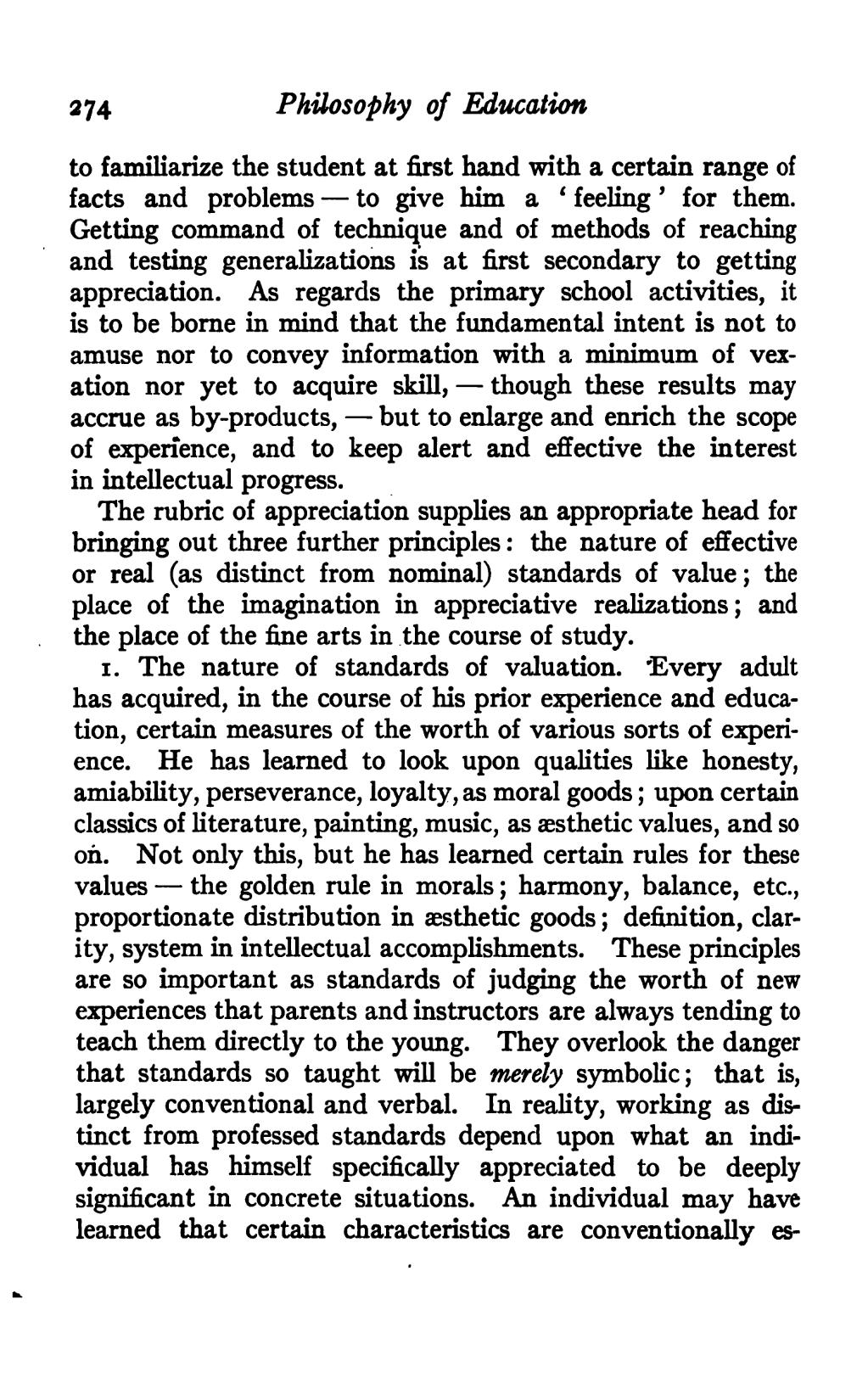to familiarize the student at first hand with a certain range of facts and problems—to give him a 'feeling' for them. Getting command of technique and of methods of reaching and testing generalizations is at first secondary to getting appreciation. As regards the primary school activities, it is to be borne in mind that the fundamental intent is not to amuse nor to convey information with a minimum of vexation nor yet to acquire skill,—though these results may accrue as by-products,—but to enlarge and enrich the scope of experience, and to keep alert and effective the interest in intellectual progress.
The rubric of appreciation supplies an appropriate head for bringing out three further principles: the nature of effective or real (as distinct from nominal) standards of value; the place of the imagination in appreciative realizations; and the place of the fine arts in the course of study.
1. The nature of standards of valuation. Every adult has acquired, in the course of his prior experience and education, certain measures of the worth of various sorts of experience. He has learned to look upon qualities like honesty, amiability, perseverance, loyalty, as moral goods; upon certain classics of literature, painting, music, as æsthetic values, and so on. Not only this, but he has learned certain rules for these values—the golden rule in morals; harmony, balance, etc., proportionate distribution in æsthetic goods; definition, clarity, system in intellectual accomplishments. These principles are so important as standards of judging the worth of new experiences that parents and instructors are always tending to teach them directly to the young. They overlook the danger that standards so taught will be merely symbolic; that is, largely conventional and verbal. In reality, working as distinct from professed standards depend upon what an individual has himself specifically appreciated to be deeply significant in concrete situations. An individual may have learned that certain characteristics are conventionally es-
